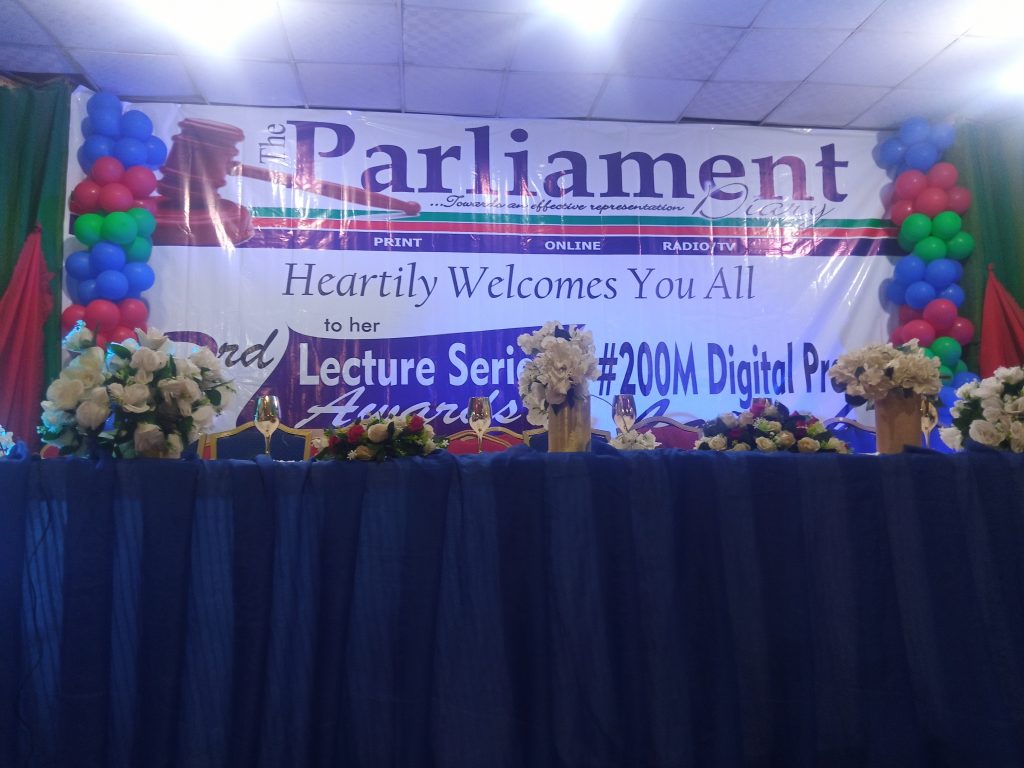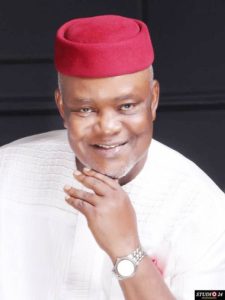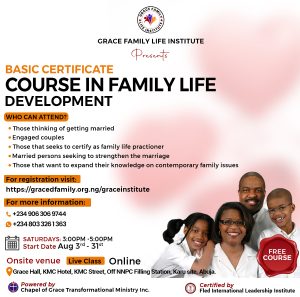Rebuilding the Broken Walls

Rebuilding the Broken Walls: A Collective Responsibility
Dr. Joseph C. Ibekwe
Nigeria is a huge project. Nigeria is a mass-mix of growth potentials and socio-political tragedies. Nigeria’s public space – its business and economy, politics, and the socio-cultural milieu – is in a flux. The country is convulsing in the pains of under-development. The nation suffers massively from false starts and dropped batons in her leadership relay race. The Nigerian people groan daily under the weight of broken dreams, occasioned by continued political leadership inadequacies at all levels. Yet Nigeria is Africa’s virgin land – the epicenter of investment opportunities.
The Nigeria Question
Many concerned persons wonder what is wrong with Nigeria. Some say Nigerians are incredulous. Some have gone on to tag it as “The Nigeria Question”.
Oftentimes we ask the wrong questions, which leads us to wrong answers. For instance, when it comes to public issues, the question people ask is “Who is wrong? Who is responsible? Who has stolen what?
We must continue to ask who is wrong and bring to justice those that have stolen our commonwealth. But the more you ask who is wrong, the more you have excuses and blames; the more people are backing off to defend themselves and their associates. And then the circle of defenses, inspired by ethnic and religious sentiment, hold sways.
I think the more fundamental question we ought to ask is “Why are we the way we are: deceitful, preposterous, incorrigible, spineless, and brazenly corrupt?
It’s a sad commentary that an average person on the street is internally corrupt; including those in the public and private sectors.
Most people only wait for the opportunity to extract something illegally from the system for themselves. It’s pervasive.
I believe corruption is simply a symptom of a dysfunctional system. People want to squeeze water out of the rock. The Nigerian society is fundamentally structured to fail. The rewards system is queer.
The Nigeria question is an incredible paradox. The Nigeria question is that of leadership failure at all levels. We have had spineless political leaders that lack the will to do the right thing for the general good, but choose to look the other way because it will hurt their interest.
We have had a retinue of parochial leaders, lacking in capacity to articulate national interest, and put it in the public domain. Leadership failure is at the heart of Nigeria’s under-development. Until we admit this reality and take steps to address leadership challenges, we will continue to treat symptoms and never get around at anything.
Poor leadership is responsible for the Boko Haram challenge we have had in the country. Poor leadership is responsible for agitations for separations from Nigeria.
Poor leadership is responsible for the Almajirin problem in Northern Nigeria and the army of young people hawking in the streets of Abuja, Lagos and other major cities of Nigeria.
Poor leadership is responsible for the massive poverty in the country. Poor leadership is responsible for the continuing killing of innocent citizens by armed bandits across the country
Poor leadership is responsible for lack of efficiency in our public institutions. Poor leadership is responsible for lack of patriotism among Nigerians.
Poor leadership is responsible for nepotism and mediocrity that we see everywhere. Poor public leadership is responsible for the abandonment of public education, paving way for business entrepreneurs to take rough forage in our educational system and turn it into centres commercial enterprises.
The impact of poor leadership is simply overwhelming. Yet everyone is talking about corruption and all the other symptoms of poor leadership.
The public sector system in Nigeria is simply designed to promote corruption. In fact, it is almost impossible for a public officer in Nigerian not be corrupt, because the system is designed to encourage it.
Today, everyone is crying wolf, yet nobody wants to come forth to confront the wolf. We know that many of Nigeria’s leaders enrich themselves from public resources. Where is the political will to bring all of them to justice? Justice and injustice.
The Nigeria question is about leadership. It is about justice based on the rule of law. Presently, Nigeria is a lawless country, where injustice is celebrated.
The Broken Walls
As I dig deeper into this topic, I will like to pose a few questions.
What are walls and why do we erect walls?
Did we ever have walls, talk less of broken walls?
A wall is a structure and a surface that defines an area; carries a load; provides security, shelter, or soundproofing; or, is decorative.
In the construction industry, there are functional requirements of walls:
- Strength
- Stability
- Weather and ground moisture resistance.
- Durability.
- Fire safety
- Resistance to heat passage
- Sound resistance
Essentially, walls are built for offer protection, safety, preservation and aesthetics.
In the old medieval age, cities were surrounded and fortified by walls against intruders and marauders. But in the modern times, cities and nations are no longer secured by physical walls. They are preserved by intangible walls built with the following construction elements, including
- Justice
- Rule of law
- Fairness
- Value for human life
- Security of lives and property
- Trust
- Respect for diversity of opinion and faith
- Equal opportunity
Ladies and gentlemen, these are the walls that have broken down in our country. We broke them systematically through the instrumentality of politics, religion and ethnicity. The destruction of our national wall was conducted under the watch of an array of parochial-minded visionless leaders we have had.
In Nigeria, we play politics of materialism – of stomach infrastructure. We play politics without vision or morality. We play politics that thrives in manipulation, lies and vanity.
In Nigeria, we are very religious, but instead of using religion to promote public morality, we use it as instrument of subjugation, oppression, division and under-development.
In Nigeria, we are blessed with ethnic diversity. Instead of harnessing that diversity for national development, we use ethnicity to create social instability and dis-unity.
The walls broke. They are broken! And those that broke them are hanging around, preventing anyone from re-building the walls. Why? Because, as long as the walls are broken, they profit from the uncertainty of the situation. And their position is simple! “If you don’t like the situation as it is “Go to Court”.
But we won’t go to court. We shall rebuild these walls, not by fiat or by judicial pronouncement. But by our collective responsibility! There is something each of us can do!
Collective Responsibility
There are two things we need to before we start the rebuilding process. We need new form of education and we need to embrace new kind of thinking.
We need citizenship and leadership education. People don’t understand what it means to be a citizen. They know what it means to be a member of their religious or ethnic groups, but they don’t understand what it means to become public citizens is in a democratic society. Everyone should also avail themselves of leadership education. Public leadership is so important that we can no longer let it be an all-comers affair. Going forward, those who seek to lead in the public space must be required to undertake leadership training. This is to re-calibrate their thinking, their perspectives, and their ability to deal with diversity.
In other words, there should be ongoing citizenship and leadership education at all levels, across the country.
We should embrace a new way of thinking, which I refer to as catalytic thinking.
Why is important to embrace a new kind of thinking?
We live in an increasingly complex world. Society is no longer as simple, humane and accommodating as it used to be. Everyone is afraid of everybody. Conflicts are erupting from within, around us and from afar. There are conflicts of interests, conflicts of values, conflict over resources, and political conflicts.
Because of the complexities of our circumstances, citizens and leaders must begin to understand the structure, the intrigues and features of our society. We all need a mental shift. This mental shift begins with “Catalytic Thinking”.
What is it about?
Catalytic Thinking has to do with thinking about the way we think, that makes us do things the way we do them, and that eventually gives us the results we get.
Catalytic thinking is a form of thinking that encourages progress or positive change. There are certain thinking patterns that hinder progress.
Many people take decisions about others based on assumptions and wrong belief. We believe the worst of others. We have wrong perceptions about them even, before we meet them or have any business with them. This is one of our biggest problems. Assumptions and wrong beliefs determine how those in public leadership take decisions and how they treat public issues. It trickles down to how ordinary citizens relate with each other on the streets.
The power of assumptions and belief might not be among the popular issues at public discussions, but it is at the root of all that transpire in all levels of our public intercourse.
You are not treated as a citizen, not as a person with capacity and competence to serve and solve problems. Instead, you are treated based on your ethnicity, your religious affiliation, your region or state of origin. Leaders have assumptions about people from different ethnic or religious groups, which defines how they treat persons from those groups, irrespective of the persons competence or capacity.
As individuals seated here today, what assumptions do you have about others; about people from ethnic groups different than yours; about people from other cultural or religious backgrounds? What assumptions do you have about Nigeria?
This is the root of all that we manifest in our public life. Our leaders won’t discuss it because it is malignant, evil, spiteful, malicious, and they know it.
Unless we change our assumptions and beliefs about people, we cannot treat them any better. An as long as we treat people bases on assumptions, we continue in the circus of distrust and under-development.
How Do We Make the Change?
To change beliefs and assumptions, we have to change the questions we ask. Unfortunately, in our environment, people are not trained to ask questions. They are often afraid to ask questions for fear of being reprimanded.
Our individual religious upbringing discourages us from asking questions from our instructors and leaders. Unfortunately, we bring that same attitude to the public space. That is why we often do not feel inclined to ask our political leaders questions about the actions they take on our behalf. When citizens observe things that are wrong in the society; they often simply murmur about it and move on with their lives. This is wrong!
Ladies and gentlemen, everything begins from our assumptions. Once we deal with issues of assumptions, then we can begin to rebuild the broken walls. Without calling attention to the way assumptions have destroyed our national fabric, we can’t build any sustainable society.
The truth is that assumptions are not easy to clear out. The way to change assumptions is by asking three kinds of questions.
What is possible? This is different from asking, “What is the problem”? This kind of question helps us to focus on the kind of future we want to see, and to consider what it would take to make that future possible. Instead of focusing on “what is the problem”, the focus on “What is Possible?” We have ethnic diversity, yes. What is about with it? How can we maximize this diversity for our collective benefit? We have religious diversity, yes. What is possible with this diversity? How can we maximize this diversity to improve public morality and national development?
“What brings out the best in us? This is about what we can accomplish together. It is about seeking collaborations and gaining leverage. Instead of asking questions that make us appear suspicious, we seek to find out what each of us, from different ethnic nationalities, religious affiliation, has that will help make the future better for all of us. Everyone has something good about them they can offer. How do we bring out the best from each of us for the collective good?
The third and most powerful question to ask in order to change the assumptions and beliefs is to ask: “What do we have together?
This question is about resources – money, time, land, etc. The question forces us to shift from the assumption that there isn’t enough for everyone, which makes us to compete and to hoard. Instead, we begin to operate from the assumption that there is enough for everyone. Our focus now is on what it will take to share what we already have in order to support each other. Nigeria is blessed with abundance of resources – oil, arable lands, good climatic conditions, incredibly high level of human resources, etc. How do we maximize these resources for collective benefit, without thinking about region, religion, or ethnicity?
Ladies and gentlemen, the truth is that, there is enough for everyone. There is enough in Nigeria to take care of everyone, minimally.
This is the mindset I need you to receive and function by. Don’t let any politician deceive with the talk of ‘there isn’t enough’.
It is over-consumption and greed of the leaders that create lack and scarcity in our society.
We are to begin to think in terms of Collective enoughness – This is the mindset that encourages everyone to bring what they have to the table; that we have everything we need to do whatever we need to do.
This thinking pattern reduces competition over resources. Catalytic thinking reduces competition and encourages collaboration; and collaboration is the key to development and prosperity in any society.
Conclusion
If we must build the Nigeria of our dream, leaders and citizens must start by changing the assumptions they have about people from ethnic or religious group different from theirs. They assumptions of distrust of other people’s ideas, initiatives, and projects.
Each of us must admit that there is enough knowledge; enough resources, and enough capacity, in our nation and society, to accomplish anything we want to do.
Once individuals begin to avail themselves of leadership and citizenship education, and begin to think catalytically, without assumptions, pieces of the broken walls will begin to form together again.
- Justice
- Rule of law
- Fairness
- Value for human life
- Security of lives and property
- Trust
- Respect for diversity of opinion and faith
- Equal opportunity, Etc
… will begin to take roots again in our national life. Individuals will have the liberty to harness their creative capacities to live as decent human beings and contribute to national development.
This is where to begin. Everyone can do it, starting from this hall today. Thank you and God bless you.
Dr. Joseph C. Ibekwe
President/CEO, FLED GROUP
This is the full text of the paper presented by Dr. Joseph C. Ibekwe at the 2023 Parliament Diary Lecture Series held at the National Merit House, Abuja on June 22, 2023







